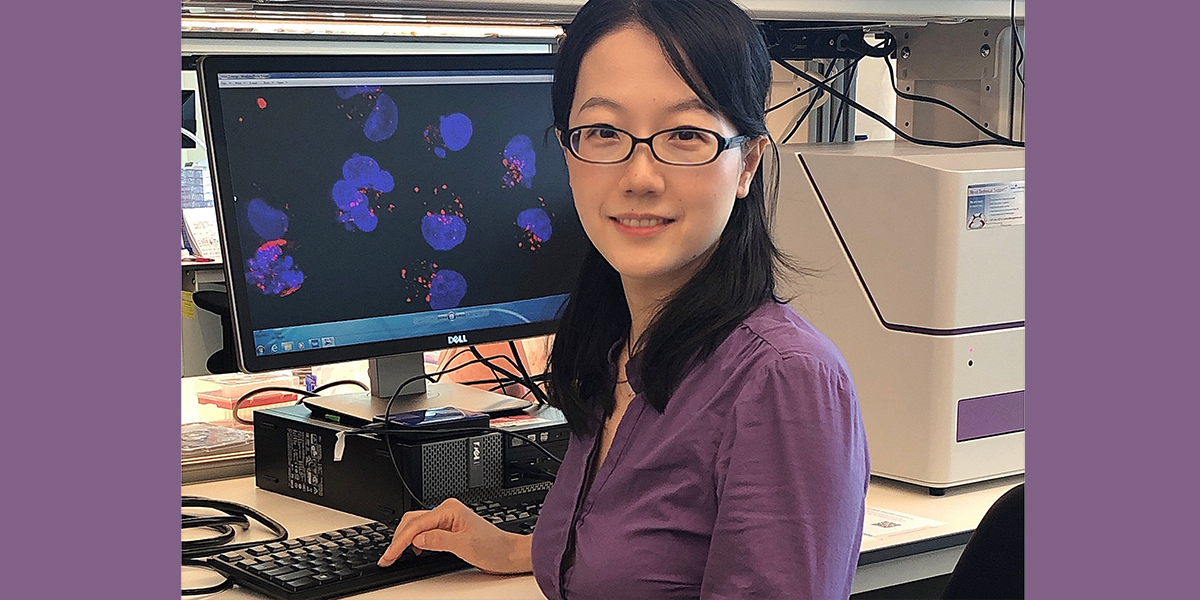Pancreatic cancer is particularly deadly because it is often found in advanced stages when the tumor has grown too large and spread from the pancreas making removal impossible. In order to grow, cancer cells require molecular food – Dr. Wantong Yao’s Seed Grant research investigated mechanisms to starve those cells as a therapeutic intervention for pancreatic cancer.
Almost 95% of human pancreatic cancers contain oncogenic mutations of the KRAS gene which drives the initiation, development, and progression of the disease. There is currently an effort to pharmacologically target genetic mutations in the KRAS gene and inhibit tumor growth, but that research is in early stages and may not be effective for all KRAS mutations.
It was previous shown that mutations in KRAS in pancreatic cancer initiates the cellular process of macropinocytosis, in which the cell surface membrane engulfs extracellular fluid and prioritizes signaling pathways that support their uncontrolled growth. By interrupting those pathways and blocking the food supply, there is the opportunity to target and prevent cancer cells from growing.
New research from Dr. Yao, conducted at MD Anderson Cancer Center, sought to identify ways to starve and kill cancer cells by understanding the mechanisms responsible for how mutations in KRAS drives macropinocytosis. This research focused on the proteins expressed at the surface of the cell, where macropinocytosis takes place. By studying changes in the proteins expressed at the cell surface when mutant KRAS was expressed in cancer cells, Dr. Yao’s research was able to identify a link between mutant KRAS and activation of macropinocytosis.
Through funding from a 2017 Seed Grant, Wantong Yao, MD, PhD, identified SDC1, a protein that was more abundant when mutant KRAS was expressed than in cells where there was no mutant KRAS. Their research confirmed that while SDC1 may be present in the cell, it is only when mutant KRAS is expressed that SDC1 is shuttled to the cell surface to drive macropinocytosis. Understanding that SDC1 acts under the control of mutant KRAS to fuel cell growth provides an opportunity to target SDC1 and inhibit tumor cell growth. Since SDC1 drives growth when it is on the surface of the cell, it may be more vulnerable to intervention. There is research underway targeting SDC1 using monoclonal antibodies in multiple myeloma patients, which may open the doors for similar therapies for pancreatic cancer.


